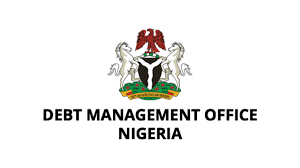Transparency questions trail decline in promissory note debt
Questions are beginning to surface over the transparency of Nigeria’s debt management process as the country records a notable decline in its promissory note obligations.
In a position article, the publisher of Prime Business Africa, Dr. Marcel Mbamalu, raised concerns about the authenticity of the reported decline. He queried whether the reduction in promissory notes truly reflects improved fiscal discipline and prudent debt management or if it conceals underlying issues such as deferral or abandonment of critical capital projects.
According to data from the Debt Management Office (DMO), Nigeria’s promissory notes debt declined by 15.6 per cent quarter-on-quarter between December 2024 and March 2025. The debt fell from N1.542 trillion to N1.301 trillion—a reduction the DMO attributes to the Federal Government’s recent efforts to settle verified obligations and restore confidence among key stakeholders in the economy.
A promissory note, as defined by Investopedia, is a written promise from one party (the issuer or maker) to pay another party (the payee) a specific sum of money, either on demand or at a defined future date. These instruments typically outline all pertinent terms, including the principal amount, interest rate, maturity date, payment schedule, place of issuance, and the issuer’s signature.
In his critique, Dr. Mbamalu posed critical questions about the process behind the reported decline:
“Is this drop a genuine sign of improved fiscal discipline and debt management, or does it mask deeper issues such as the deferral or abandonment of critical capital projects?” he asked.
He emphasized the need for greater transparency in how the government manages and reports its debt position. The drop in promissory notes comes amid broader concerns about Nigeria’s growing public debt, which has now risen to approximately N149 trillion. This increase is largely driven by naira depreciation, surging interest payments, and continued borrowing to fund fiscal deficits.
Dr. Mbamalu cautioned that:
“Fiscal health cannot and must not come at the expense of Nigeria’s long-term growth and the well-being of its people. The government must balance the imperative of debt control with the urgent need to deliver essential capital projects that drive national development.”
He further advocated for an independent audit of the reported figures and called for more robust legislative oversight to ensure the credibility, sustainability, and transparency of Nigeria’s debt reduction strategies.
As Nigeria continues to navigate economic headwinds and pursue fiscal consolidation, stakeholders will be watching closely to see if this decline in promissory note debt marks genuine progress—or merely a shift in accounting.














Post Comment